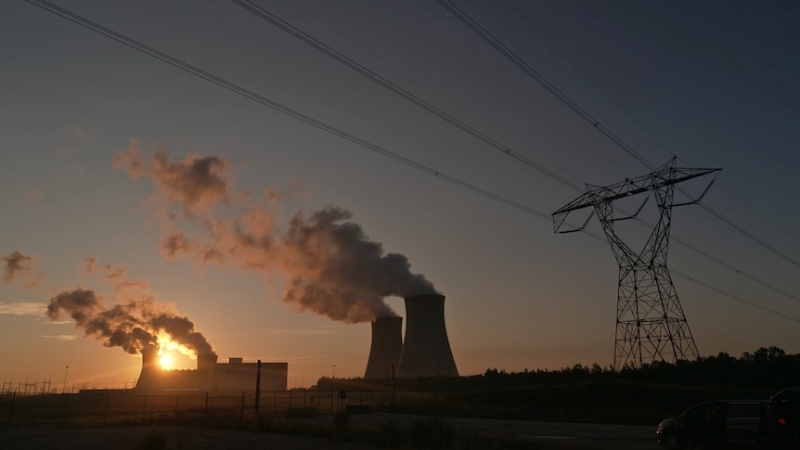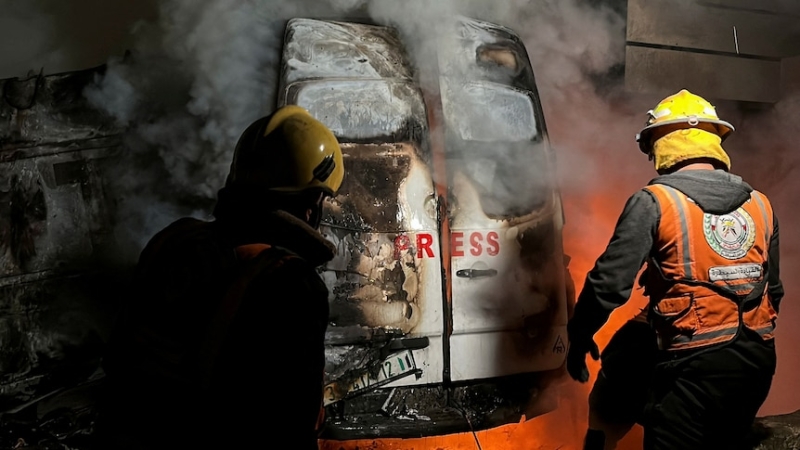A nuclear power plant in the US, one of 32 countries with operational nuclear plants. (Four Corners: Ryan Sheridan)
In short:
Indonesia's energy council has proposed 29 sites for nuclear power plants in a bid to secure reliable energy sources and reduce carbon emissions.
Environmental groups say the plan is "dangerous", partly because the country is prone to earthquakes.
What's next?
The energy council is searching for foreign investors to back the plan.
Nuclear power plants will be built across earthquake-prone Indonesia under a proposal put forward by the country's energy council — a plan environmentalists say is "dangerous".
While the Indonesia National Energy Council proposal is still being formulated, the authority has suggested 29 possible nuclear plant locations.
The sites stretch from North Sumatra, south-east across the archipelago, to West Papua.
Agus Puji Prasetyono, one of the council members, told ABC Indonesia nuclear power was "unavoidable" because the government needed to secure reliable energy sources and reduce carbon emissions.
"Many G20 countries from Asia like Pakistan, United Arab Emirates and Bangladesh have built nuclear plants," Mr Prasetyono said.
"How come we are the only [country] who doesn't have one?"
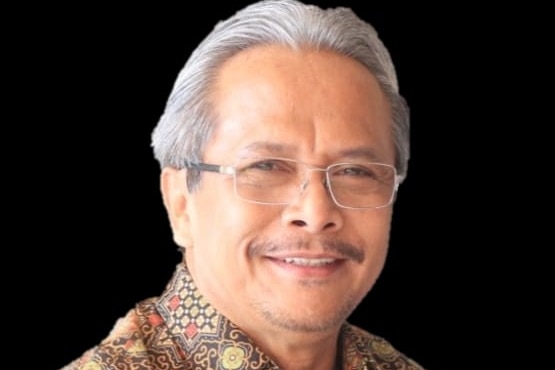
Agus Puji Prasetyono says viability studies would be done on proposed sites. (Supplied)
Indonesia has long considered nuclear power but in recent months the government has been in talks with foreign governments and companies to acquire technology and infrastructure required for the plants, according to local media.
It comes as debate ramps up in Australia over the viability of nuclear after the Coalition released costings for its plans.
While the price of Indonesia's nuclear proposal is yet to be worked out, it would need backing from foreign investors because the government cannot afford to build nuclear plants, Mr Prasetyono said.
The eight-member energy council — part of the Energy Ministry and employed by the Indonesian government to formulate the country's energy plan — have met with multiple interested companies including from China and Russia, he added.
Nuclear plants 'risky'
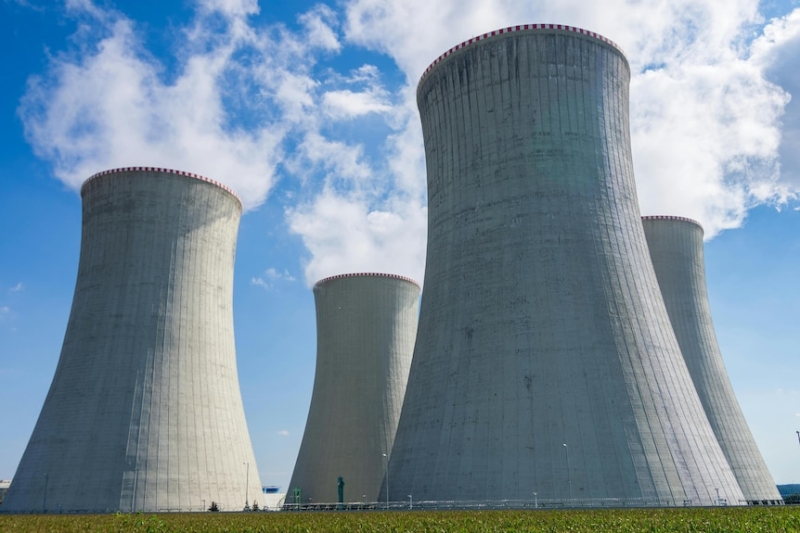
Twenty-nine nuclear power plant sites are being considered by Indonesia's energy council. (Pexels: Rob; license)
The new detail on plant site locations has renewed safety concerns among environmental advocates in part because Indonesia is prone to natural disasters.
The archipelago mostly sits along the Pacific Ring of Fire where tectonic plates frequently collide and cause earthquakes and other disasters.
Twenty years ago, a magnitude-9.1 earthquake struck off the coast of Indonesia's Aceh province and triggered the 2004 Boxing Day tsunami, that killed some 230,000 people across Indonesia, Sri Lanka, India, Thailand, and nine other countries.
The wave that broke Asia
Photo shows A close-up of Fauziah Basyriah in a florally patterned Hijab, looking sorrowfully at the camera.
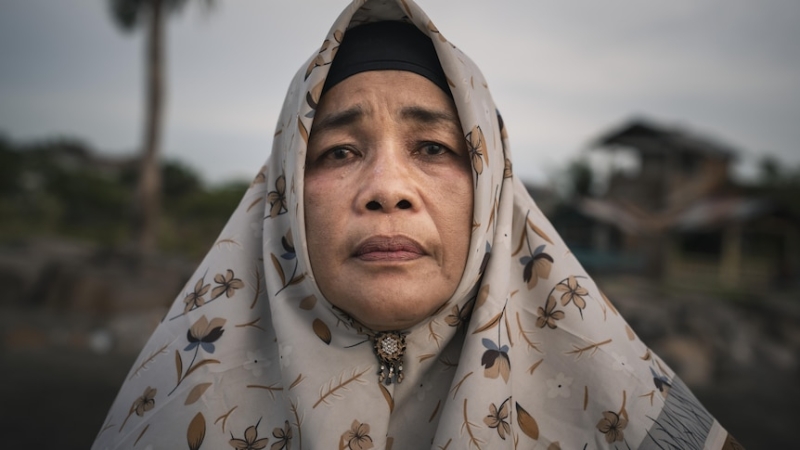
Hendrikus Adam, from environmental not-for-profit organisation WALHI, said authorities needed to learn from past nuclear power disasters, including those caused by earthquakes and tsunamis like the Fukushima accident in Japan in 2011.
"We think nuclear plants are risky, dangerous and harmful for humans and the environment," said Mr Adam.
"The development of a nuclear plant itself is also very expensive and hazardous."
Mr Prasetyono said viability studies would be done on proposed sites to ensure risks of natural disasters were minimised.
"The fault line would have to be more than 5 kilometres away [from the plant] to minimise significant impact on construction," he said.
If the proposals went ahead, the plants would use newer technology with better safety systems, he added.
Nuclear for nickel industry
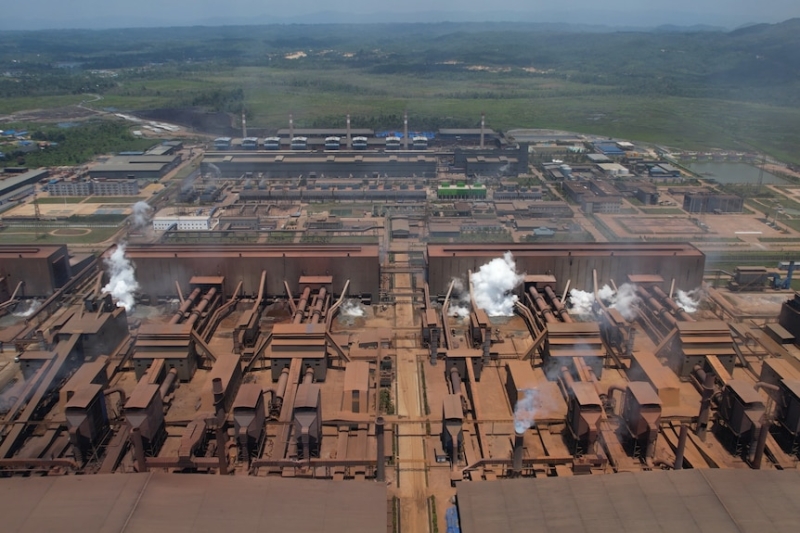
Nickel is a major industry in Indonesia. (ABC News: Yusuf Priambodo )
Nuclear power plants operate in 32 countries worldwide, according to the World Nuclear Association.
At the G20 summit in November, Indonesia's President Prabowo Subianto pledged to retire all coal and fossil fuel power plants within the next 15 years in order to achieve net-zero emissions by 2050.
That commitment meant nuclear power had now become inevitable for Indonesia, explained Mr Prasetyono, because huge Indonesian industries like nickel relied on stable energy sources.
Indonesia is the biggest refiner of nickel in the world thanks to billions of dollars of mostly Chinese investment, and the industry uses coal-fired power plants.
"Solar power plants or the wind or water-powered plants — these are all intermittent energy sources," he said.
"The intermittent energy is fluctuating and can't power smelters … it has to be nuclear."
Inside one of the most radioactive places on earth
Photo shows A man in a helmet, face mask and vest stands outside a nuclear plant
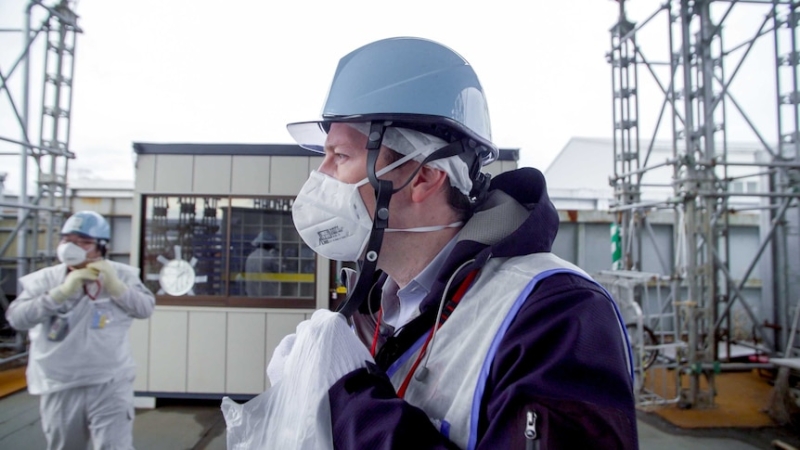
However, senior strategist from the Indonesian Centre for Environmental Law Grita Anindarini disputed this assessment.
Ms Anindarini said there were still many "under-utilised" sources of renewable energy.
Last month, National Development Planning Deputy Minister Vivi Yulaswati said Indonesia was in talks with the US and Russia about acquiring technology to develop nuclear power plants.
Separately, Indonesia's state-owned electricity firm PLN has reportedly signed agreements with companies in the US and Japan to build small modular reactors, Coordinating Economic Minister Airlangga Hartarto said earlier this month.
"This is something that needs to be considered to strengthen the support for our energy industry," Mr Hartarto said, in a report by local media kompas.com.
Details of the agreements are scarce and PLN declined to comment for this story.
Small modular reactors have a capacity of up to 300 megawatts per unit — about a third of traditional nuclear plants.
Currently none are in commercial operation in any Organisation for Economic Co-operation and Development (OECD) country.
In Australia, the town of Collie in WA has been in the spotlight as the federal Opposition wants to turn the site of one of Collie's coal-fired stations into a small modular reactor if elected.
The WA government is in the middle of transitioning the town away from coal by 2030.
Indonesia's National Nuclear Energy Agency (BATAN) operates three nuclear reactors for research only, in Bandung, Yogyakarta and Serpong.
With Reuters

